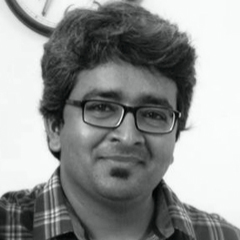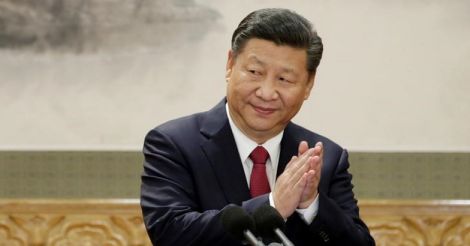Xi Jinping has been an enigma for most outside China and this may be true for most inside China as well.
The way Xi came to power and the way his persona, work ethic and governance style and ability were projected did create a lot of optimism among most of China watchers.
Over the past five years, Xi’s enigma has taken two contrasting but equally significant turns. On the one hand, Xi has become more and more powerful and on the other, fewer of his promises of governance and reforms have been delivered.
Whatever China does, has implications for the world as such. This was why the the world watched closely when the Communist Party of China (CPC) held its 19th Party Congress in October 2017.
The main question that the party today grapples with is how to ensure political accountability and deliver public goods without ushering in such political reforms that dilute the party’s powers.
In November 2016, Xi was enshrined as the “core leader” of the party. As a next step, Xi’s “Thought on Socialism with Chinese Characteristics for a New Era” was written into the party constitution in October 2017.
He is only the third leader to have his name in the party charter, after Mao Zedong and Deng Xiaoping, and that too in the middle of his 10-year term.
Along with “Xi Jinping Thought,” the revised CPC constitution also included the Belt and Road Initiative (BRI). This is a significant move, since it gives more urgency and political legitimacy to the “New Silk Roads” initiative.
Constitutional sanctity means that the entire party has rallied behind the BRI and that it will have to be followed in an unswerving manner.
That Xi Jinping intended to stay in power longer had become evident at the end of the party congress last year.
This was primarily because out of the five new appointees to the Poliburo Standing Committee (PBSC), none of the members were below the age of 56, or capable of being able to be in the PBSC for three terms.
Before the congress, Hu Chunhua, and Sun Zhengcai were the two most prominent names being discussed as the leaders of the next generation.
However, they were absent because Xi included everyone who was significant enough and below the retirement age of 68. In normal course, one of these names would have become vice-president and the another, the executive vice-premier, before being promoted in 2022-23.
However, that is not going to be the case now since the national constitution is being modified for the president to be able to have a third and possibly fourth term.
This has various domestic and international implications. Domestically Chinese politics is factionalised.
The Shanghai group and the Communist Youth League are the two most prominent ones.
Xi Jinping, being the son of former party leader, was considered close to the Shanghai group but he has rewarded loyalty and has started the Zhejiang group of his own making it a three dimensional race.
He has in fact put Zhou Yongkang of the Shanghai group behind bars for corruption the biggest minister and politician to be punished like this in China. That shows the kind of power Xi wields today.
He is also pushing the PLA army hard for reforms and has indirectly told the generals to focus on operations and leave money matters to the party as such.
Another trend has been that off late, China has been promoting its governance system as a path and model for developing countries to solve their problems and develop faster.
This was said first during the 19th Party Congress in October last year and Xi Jinping repeated this during the ongoing NPC as well. Taken together with the centrality of BRI in the Chinese approach to the world, this indeed does send out a rather worrying message.
China’s interference in the internal affairs of developing countries was more of an open secret but with this theory coming into practice, especially with the support of the country’s paramount leader, it can be especially worrying.
Take the recent example of the developments in Maldives and the role of Chinese money and investment that has clearly played out there makes it a classic case of what is likely to happen in the future. Similarly, countries like Nepal are vulnerable to Chinese money.
For the world, Xi forever is a difficult thing because it has got used to the succession model after Deng Xiaoping.
This did bring about stability in China, paved way for deeper reforms and helped the world understand the Chinese top leader before he assumed his powers.
When will the next power transfer happen in China and can and will it be peaceful are the two most important questions on which everyone has been left guessing now!

























 China's President Xi Jinping claps after his speech as he and other new Politburo Standing Committee members meet with the press at the Great Hall of the People in Beijing, China October 25, 2017. REUTERS/Jason Lee/File Photo
China's President Xi Jinping claps after his speech as he and other new Politburo Standing Committee members meet with the press at the Great Hall of the People in Beijing, China October 25, 2017. REUTERS/Jason Lee/File Photo